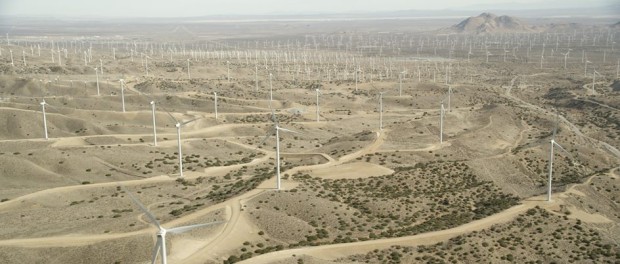Ending Our Oil & Gas Addiction: COP21 Marks the “Time to Choose”
This past weekend marked the conclusion of the 21st session of the Conference of Parties in Paris. The climate change-focused conference convened from November 29th to December 13th, bringing together hundreds of government officials and UN representatives as well as thousands of outside participants and environmental activists. With the objective of building a “Paris Climate Alliance” capable of halting global surface temperature rise beneath 2°C, the event also aimed to send a message to boardrooms and national capitals the world over: the end is nigh for fossil fuels, and the future of the planet and all her inhabitants hinges on the success of a clean energy revolution.
Unfortunately, climate action efforts can no longer be limited to the reduction of carbon emissions from fossil-fuel combustion alone. We must adapt to a “new normal,” combining resiliency and adaptation tactics to prepare for increasingly powerful floods, droughts and storms, as well as rising temperatures and sea levels.
Time to Choose, a new film by Academy Award-winning documentary director Charles Ferguson, doesn’t let audiences forget that the power is in their hands to stop the worst effects of climate change before it is too late. Shown at the Paris events as well as in Telluride this past September, the documentary focuses on four of the biggest planetary offenders: coal and oil production, rapid urbanization, deforestation, and industrial agribusiness. Ferguson travels the world to show the severity of the destruction, revealing environmental abuses in North America as well as in China, Brazil and Nigeria. A comprehensive if long-winded analysis, the film suggests that it is not if we can enact meaningful change, but when we will finally decide to do so, as the tools to implement green, sustainable action plans are already within our grasp.
In the film, Christina Figueres, the executive secretary of the United Nations Framework Convention on Climate Change (UNFCC) emphasizes the fact that “over the next six to ten years, we have an urgent responsibility to decide how this world is going to be in the future.”

© Birdlife.org
The “landmark agreement” reached in Paris this weekend, approved and agreed-upon by 195 nations on December 12, is the first of its kind, and includes provisions to help the world prepare for and respond to the projected future impact of further climate shifts. But while the final document recognizes the fact that “climate change represents an urgent and potentially irreversible threat to human societies and the planet and thus requires the widest possible cooperation by all countries,” and that “deep reductions in global emissions will be required in order to achieve the ultimate objective of the Convention and emphasizing the need for urgency in addressing climate change,” this legislative victory is just another piece of paper until the world decides to collectively transition to a clean energy economy.
Erna Solberg, the Prime Minister of Norway, argued at the conference for countries to phase out subsidies for fossil fuels – according to Ohio Gas, doing so in 20 of the largest nations worldwide could help global greenhouse gas emissions drop by at least 10%. But Narendra Modi, India’s Prime Minister, countered that poorer countries should be allowed to utilize coal and oil to continue to improve the quality of life for their inhabitants. Renewable technology, without major investments from wealthier developed states, is simply out of reach for the time being.
Good news did come in the form of an agreement between India and France, however, with the two countries agreeing to launch the “International Solar Alliance,” which will help India add 100 gigawatts of solar plants by 2022 with 12 GW worth of plants coming online by the end of 2016. Presidents Barack Obama and Xi Jinping have also reaffirmed their intentions to work together on climate change. Since the US and China produce 16 and 30 percent of the world’s greenhouse gas emissions respectively, their commitment to climate action is imperative.
Taking time to reflect on the outcome of COP21 and the information contained within Time to Choose is important – how can we, as individuals, make a positive, lasting impact in the face of such an overwhelming environmental crisis? But time is no longer on our side, and the sooner we realize that, the sooner we will see climate change for what it really is: the dawn of a new era on Earth, and our last chance to redefine our relationship with the only planetary home we’ll ever have.






